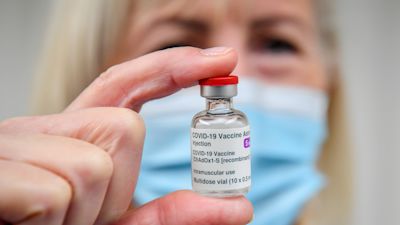Chancellor offers more support to businesses but salvation sits in a vial

As the shutters come down again on shops, pubs, restaurants and hairdressers the government is offering cash grants of up to £9,000 per property to keep them afloat. The extra financial support will, I suspect, be the difference between hope and despair in the weeks ahead but business groups, including the Confederation of British Industry and the British Chambers of Commerce, are politely indicating it is inadequate. They warn that viable companies will fail during this latest lockdown unless chancellor digs deeper.
There’s a lot on the table already: the furlough scheme runs until the end of April; The Self-Employment Income Support Scheme is still taking applications; Universal Credit has been made £20 a week more generous until the end of March; business loans are still available; there’s tax relief on VAT and business rates until the end of March; councils and the devolved administrations are being given hundreds of millions to distribute locally to companies in distress. The Institute for Fiscal Studies (IFS) calculates the cost of all the support measures announced to-date is likely to exceed £290 billion this year. All of the various taxpayer schemes run until the Spring. There is still time for Rishi Sunak to do more but you can understand his instinct to proceed cautiously. Before today’s announcement the government was spending much more money than it had coming in. At least £1 billion more, every day. Government borrowing has reached levels last seen during the Second World War and is now set to rise even further. Some decisions can be safely delayed until the Budget in March, others the chancellor is under pressure to address now. Six million families will find themselves £1,000 a year poorer in April if the uplift to Universal Credit isn’t extended. “[The chancellor] ought to say now if he’s going to increase it,” said Paul Johnson, head of the IFS, “if it’s not kept at its current level that’s a really big loss to the incomes of very poor families”.
There is a also a large constituency of people - among them freelancers, limited company directors, those who were new to self-employment in March last year - who have found themselves excluded from the furlough and SEIS schemes. Ten months after the first lockdown began the chancellor still hasn’t managed to find a way to help them. Another lockdown is a massive setback for the economy. It is now so important vaccines are rolled-out at pace, so we can get back to some form of normality as fast as possible. Salvation sits in a vial.